Colleagues ask if Norton is still the best ‘warrior’ to fight for D.C.
Several elected officials and allies of Eleanor Holmes Norton (D), D.C.’s longtime nonvoting delegate in the House, are publicly raising questions about whether the deeply respected civil rights icon, known as D.C.’s “warrior on the Hill,” is the effective and vigorous leader the city needs as it faces escalating threats to its home rule.
Norton recently told Washingtonian magazine that she plans to seek reelection despite questions about her fitness. Four D.C. Council members told The Washington Post they are concerned about Norton — who turns 88 next week and is the oldest member of the House — seeking a 19th term, and three said or suggested it is time for the city’s most respected elder to pass the torch.
“I just feel like the past few months, we’ve been behind — we’re reactive,” council member Christina Henderson (I-At Large) said about the District’s strategy on Capitol Hill, acknowledging she has questions about Norton’s level of engagement.
Donna Brazile, a longtime Democratic strategist and one of Norton’s closest confidants, said in an interview that the delegate is aware of the concerns and is now mulling whether to run for reelection next year.
“It’s time to turn things over. You’ve done it all,” Brazile said of her friend.
“To anyone questioning my ability to serve effectively, I have one simple response: My record speaks for itself,” Norton said in a statement to The Post.
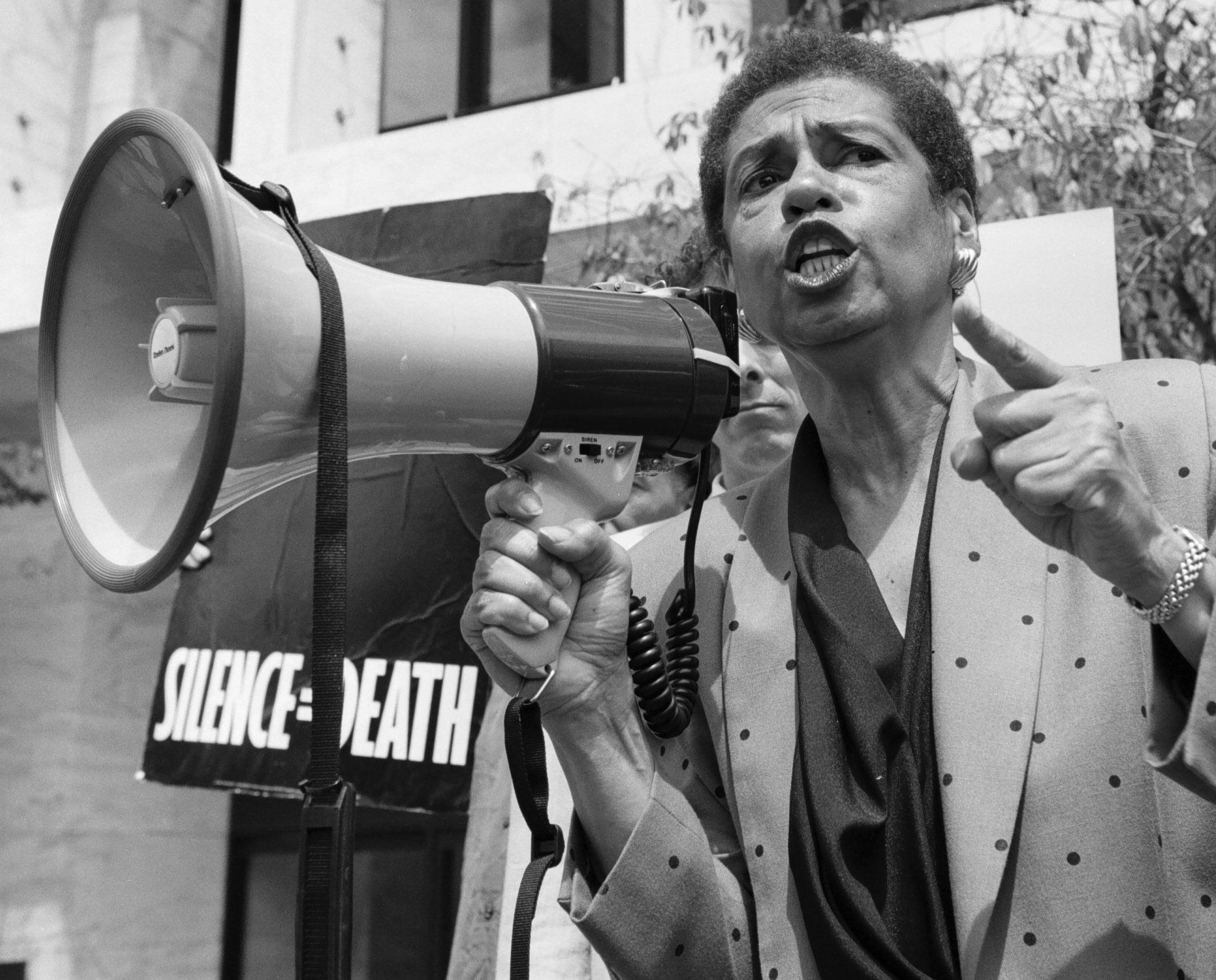
Given Norton’s stature, many in D.C. political circles and on Capitol Hill have long been hesitant to raise questions about her age and effectiveness. Their discomfort speaks to a broader political reckoning within an aging Congress: balancing respect for decades of experience and power with the reality of inevitable decline.
But the immense challenges D.C. faces — including a hostile GOP-led Congress that cut the city’s 2025 budget by over $1 billion and forced D.C. officials to pull a number of unusual levers to avoid cuts to front-line services — have prompted some of Norton’s colleagues to speak out. Council member Brooke Pinto (D-Ward 2) said in an interview that after reading “Original Sin,” a book by Jake Tapper and Alex Thompson about Joe Biden’s alleged cognitive decline , she made a renewed commitment to herself that she would speak up in any similar situation, no matter how difficult — including now.
For as much reverence as she has for Norton’s legacy, she said, this is a time “that we need to speak up, because our city needs a fighter who can do this effectively in this moment.”
“It’s amazing what she has accomplished, and she has been a wonderful representative and advocate on behalf of the District for many years,” Pinto said. “I also think we are at a unique time in our city where our autonomy is at risk, and our future depends in part on building relationships with the federal government and having an effective advocate in Congress on our behalf. And I do worry about where things stand right now with that advocacy. I don’t think it’s where it needs to be.”
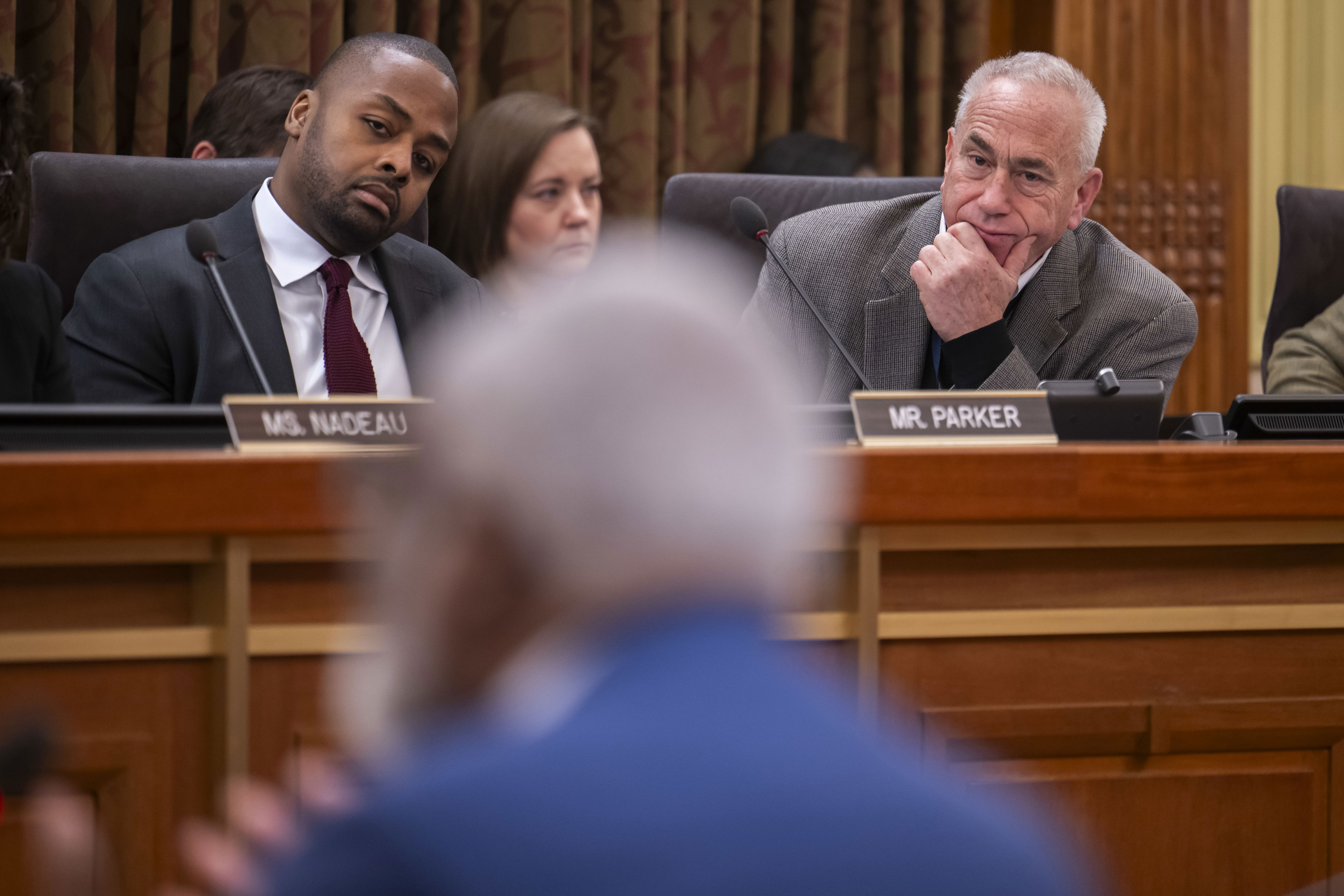
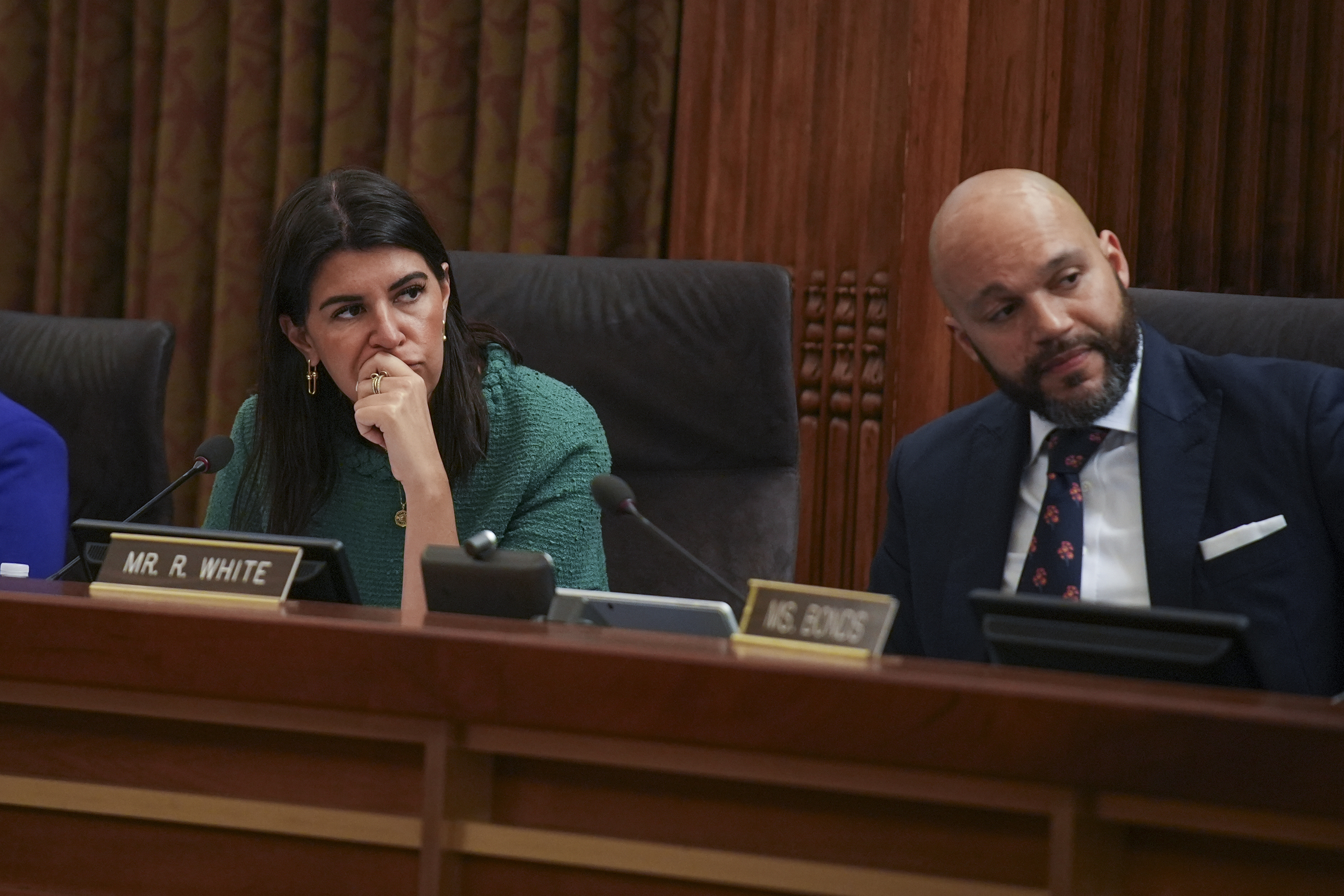
Council member Zachary Parker (D-Ward 5) said it is sad that questions about Norton’s age or capacity are casting a shadow on her “tremendous legacy” — yet still, he said, D.C. can “not afford” for those questions to become a distraction in Congress at such a critical time for the city. He said he is concerned about older leaders’ knowing when to pass the baton in general, not just in Norton’s case.
“I would hope, not just here in D.C., but across the country, the standard-bearers who have helped us advance in such significant ways could help raise up a new generation of leaders,” Parker said.
It is “time for new leadership,” he said.
Norton declined an interview request for this article but sent a statement. Since her reelection in November, she has not accepted any interview requests from The Post, including on D.C.’s budget crisis in Congress and her lobbying efforts on a bill to give D.C. control of the RFK Stadium site, and for the most part responds to requests only in statements through her staff.
Norton said in the statement that she has been “a tireless advocate for home rule and D.C.’s right to self-government” who has delivered wins. A spokeswoman, Sharon Eliza Nichols, added that Norton lobbied for critical D.C. priorities, including the RFK measure and preventing the transfer of D.C. National Guard fighter jets to Maryland.
Norton said in the statement that much of her work is defending D.C. from attacks on its self-governance. During the last Congress, she said, “I successfully blocked nearly all of them.” While many do not expect Norton can single-handedly stop the GOP from trying to block liberal D.C. policies, in the last Congress, those efforts advanced from the House at a clip not seen in decades, including with support from some Democrats. In fact, several such bills will get a vote on the House floor next week.
In a city that has struggled for voting rights for its entire existence, today, many residents have known no other House representative in their lifetime. Representing D.C. has been Norton’s life. Achieving D.C. statehood has been her mission: a burning commitment to realizing the full rights of citizenship for the city’s 700,000 residents that Norton has shouldered during 34 years in the House despite having no voting rights herself.
There is no doubt, said Charles Wilson, chairman of the D.C. Democratic Party, that city residents are “extremely grateful” for Norton’s years of dedication fighting for D.C. autonomy.
But a saying that he heard during Biden’s challenges came to mind for Wilson: “Even the best pitcher on the team loses their fastball eventually,” he said. “There’s nothing wrong with allowing people to stand on your shoulders to continue the work that you’ve done.”
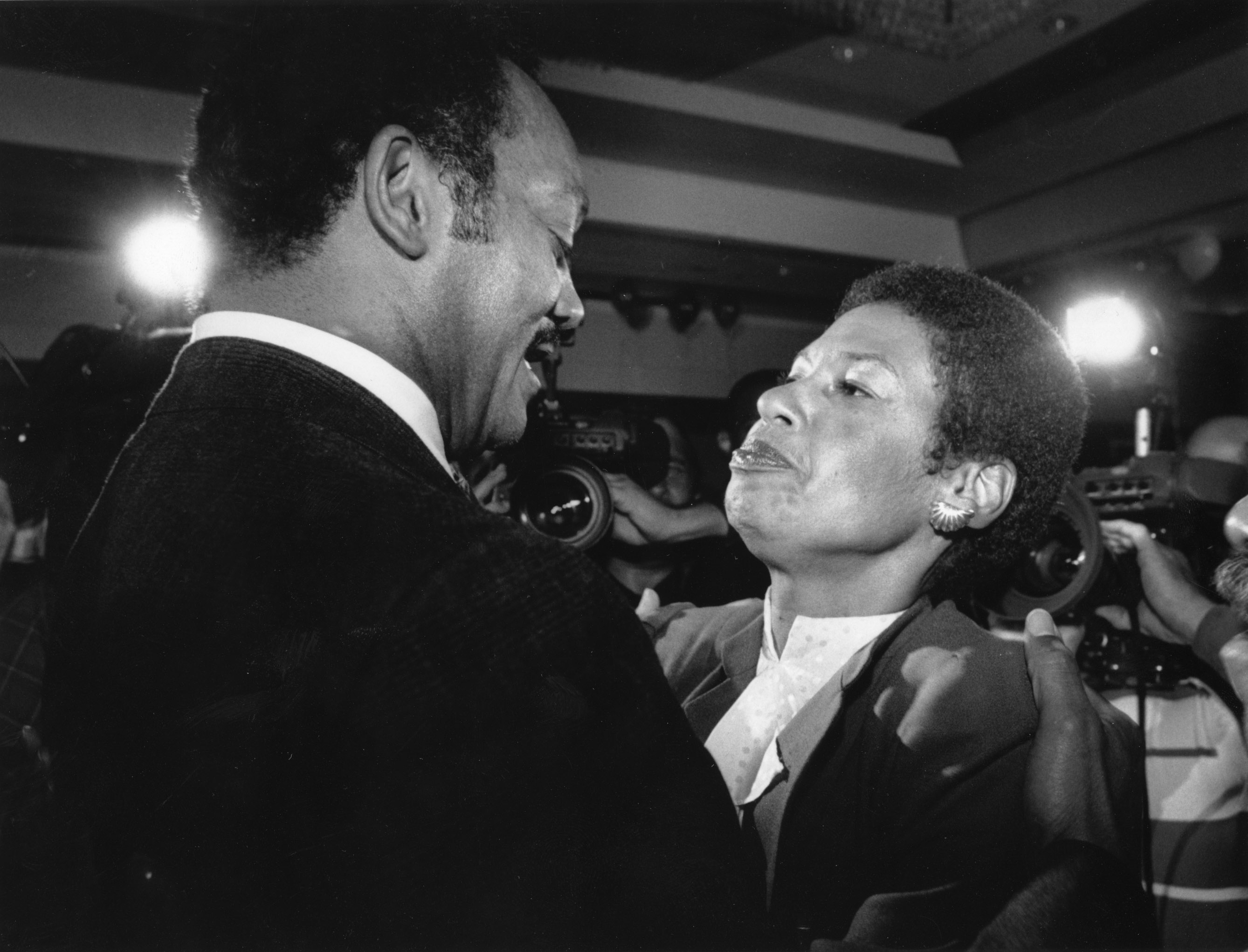
Norton, a third-generation Washingtonian who attended segregated D.C. public schools and ultimately graduated from Yale Law School, was elected in 1990. She was vaulted into office based on her record as a civil rights fighter who had helped organize Martin Luther King Jr.’s March on Washington in 1963 through the Student Nonviolent Coordinating Committee, and as a formidable lawyer, especially on First Amendment issues. President Jimmy Carter in 1977 appointed her the first female head of the Equal Employment Opportunity Commission, where she built a reputation fighting for gender equality.
Norton barnstormed the House with a push for D.C. statehood, scoring a vote on the bill on the House floor in 1993. It failed — but in the intervening three decades, Norton managed to push D.C. statehood from a niche local slogan to a central part of the Democratic Party’s voting rights platform , achieving House passage of D.C. statehood twice, in 2019 and 2021.
Norton shepherded the District through its most turbulent and most booming times. She spearheaded major bipartisan legislation in the late 1990s to restructure some of the District’s financial obligations and to fund its criminal justice system, rescuing the city from bankruptcy. After the city rebounded, she opened the door to the redevelopment of the Wharf and the Yards as revenue-churning waterfront entertainment and dining playgrounds, pushing multiple bills through Congress that made the neighborhood transformations possible.
Though Norton now moves more slowly and speaks more softly, some still see her as a warrior. “I’ve never seen a situation where she hasn’t been able to get up and fight for us,” said council member Brianne K. Nadeau (D-Ward 1).
While delegates are not given voting privileges on legislation before the full House, they remain fully engaged members of committees and can introduce legislation and move it through committees, offering amendments and voting on them.
Norton is not absent in the halls of Congress. She attends hearings and asks questions. She speaks on the House floor when there are bills seeking to repeal D.C. policies. She introduces dozens of bills and sends letters on issues concerning D.C., and her staff is seen by many as highly engaged.
But some constituents have noticed a less energized Norton. At a voter forum held by the Ward 4 Democrats in October, one woman stood up and said D.C. politicians needed to work harder for her vote: Norton puts up “four signs in Ward 4 and gets more votes than the mayor or anybody else,” she said. “We want to see her come out at 88 years old and knock on some doors.”
On the particularly active Washington, D.C., Reddit page, one concerned person posted: “Where is Eleanor Holmes Norton?” amid economic challenges for the city. Weeks later another pleaded: “Delegate Holmes Norton, hold a town hall” for federal workers affected by President Donald Trump’s job cuts — or resign.
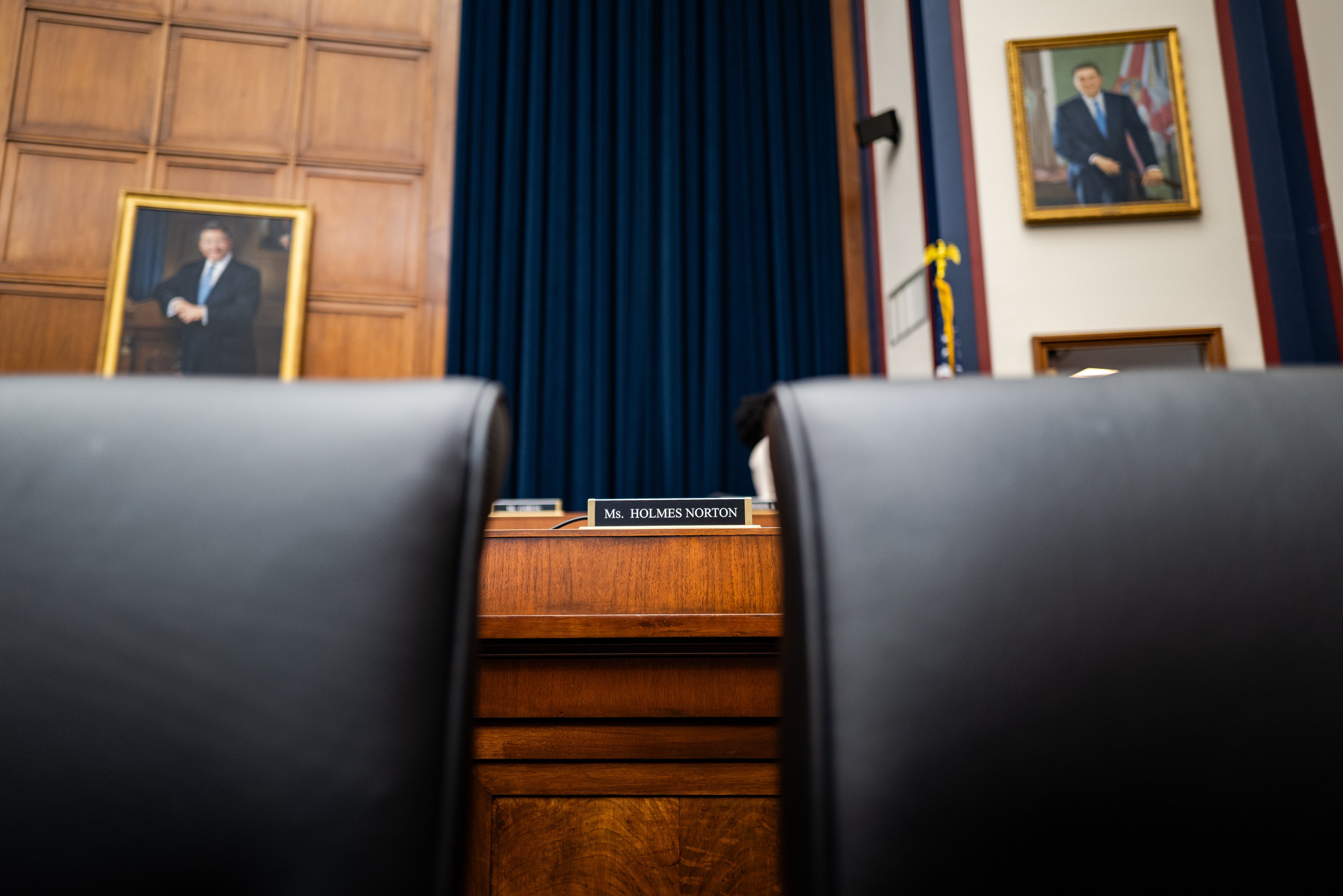
Days later, her staff announced she would be holding a tele-town hall event for federal workers. But a union official and democracy advocate answered the bulk of the callers’ questions. Norton frequently fell silent.
Brazile said that Norton still wants to spend time with her constituents but that the delegate who would curse at lawmakers or do the electric slide before hosting a town hall no longer has the same energy. “That Eleanor is in history. That’s the history book Eleanor,” she said.
Former council member Tommy Wells said that when he attended an event held for Norton at the Mansion on O Street last fall, it sank in that she was “not the same Eleanor Holmes Norton” he had known. He thought back to the days when, at any event, Norton would arrive with her own yellow legal pad, hand-scrawled with her notes and fiery one-liners that she would deliver to a captive crowd, all trained to “settle in,” Wells ribbed, for rousing Norton stump speeches. But that night she was “uncharacteristically brief,” Wells said, and while he had been eager to speak with the delegate, she engaged minimally.
Observing her advocacy on the Hill in a tumultuous year for the city, Wells has questioned whether a more energetic representative could have a bigger impact. He said he felt compelled to speak publicly about the concern after he heard Norton recommit to seeking another term.
“It’s about the future of our city,” said Wells, who now works at the legal nonprofit D.C. Appleseed. “And I love and appreciate the delegate and what she has done for us, but it’s time to move on. We need a more effective representative in Congress now.”
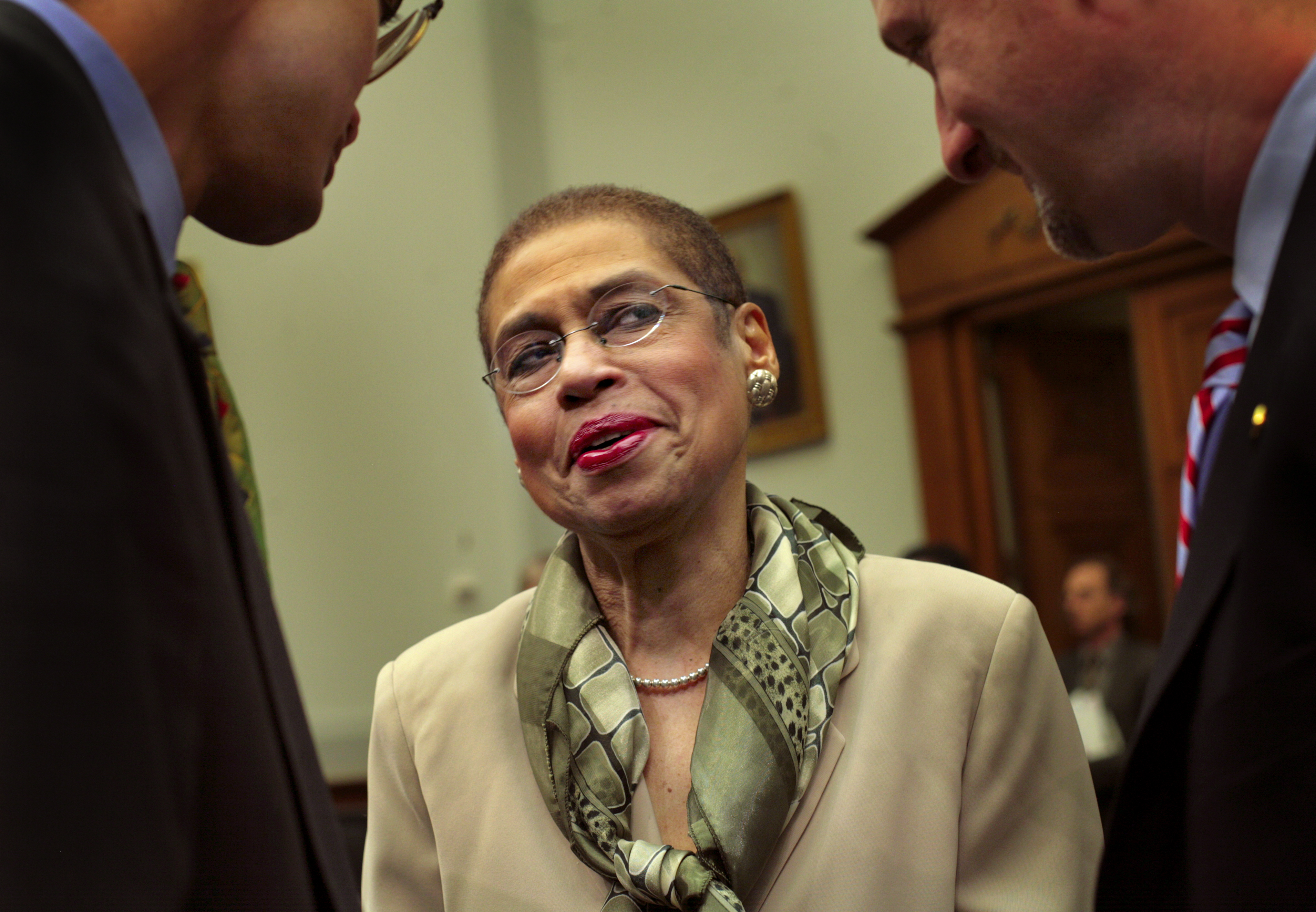
Two people who were in a meeting with Norton in April while lobbying to support the city during its budget crisis said they left feeling shocked. Norton either spoke in few-word responses or deferred to her staff to answer questions, said the people, who spoke on the condition of anonymity to discuss sensitive issues. They spoke slowly and loudly to try to help the conversation with Norton. Yet despite knowing the delegate for years, one of the people said she didn’t feel like Norton registered who she was. She said she found the situation upsetting to talk about.
“I really miss Del. Norton’s ‘I WILL NOT YIELD, SIR’ persona of yesteryear,” she wrote in an email, referring to a well-known episode in which Norton refused to yield the House floor in 2007 while fighting for the D.C. Voting Rights Act, a push for D.C. voting representation in Congress. Now, she said, she is starting to feel like people are witnessing the end of an era, and it is hard to let go.
In D.C. the question has long been: Who would replace Norton? “Is there a bench? No. How do you run against somebody who’s a 30-year incumbent?” Henderson said.
Norton’s historic tenure built D.C. influence in Congress and made her all but untouchable in over a dozen campaigns.
The Rev. Wendy Hamilton, a former advisory neighborhood commissioner in Ward 8 who ran against Norton in the 2022 Democratic primary, said she was motivated to challenge the idea that the seat belongs to Norton. She was finding, she said, that after so many years voters seemed to be sending Norton back into office “by default.” Some she encountered almost viewed a challenge to Norton as “sacrilege,” she said, asking incredulously whether she was running for “Norton’s seat.”
“I had to remind them, it’s not Eleanor’s seat. It’s the people’s seat,” Hamilton said.
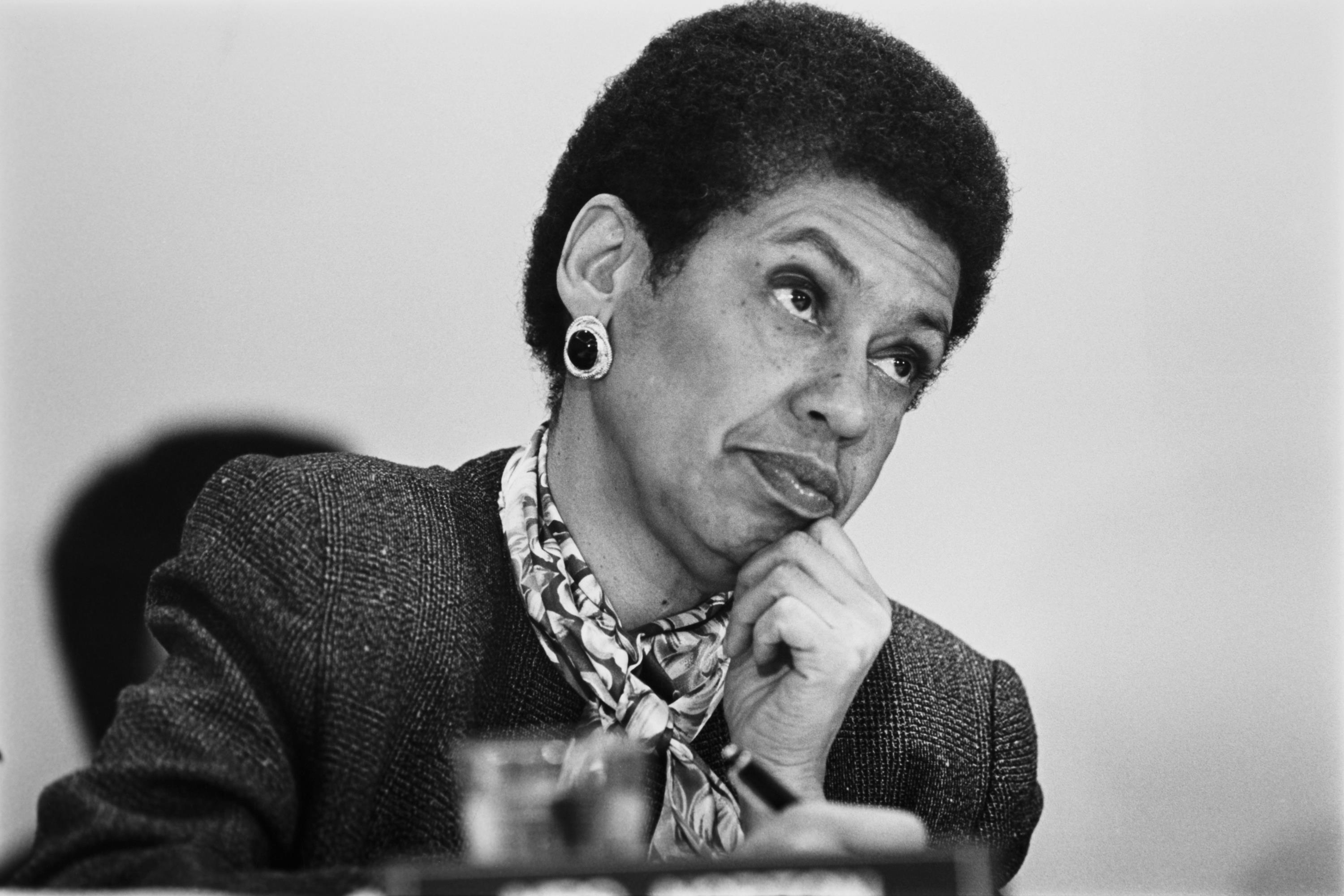
Norton crushed her, 87 percent to 6 percent.
“One thing I’ve discovered is the idea of Eleanor being the warrior on the Hill seems to be pretty baked into the psyche of the city,” she said.
Henderson said her concern about older politicians building a bench or passing the torch was not born of ageism or any sense that once people hit Medicare they should retire. Tenacity and effectiveness, rather than age, are the most important factors, she said. Her biggest critique of the Democratic Party, she said, is an increasing failure to develop the next generation of leadership, a tendency to equate a sense of duty with a belief that “you’re the only one who could possibly do the job.”
Norton is an “institution,” Henderson said. “But then I also feel like we have to ask ourselves: Can I still do it with the same vigor? That’s a question she has to ask herself. I can’t make that determination.”
Matthew Choi contributed to this report.
Post a Comment